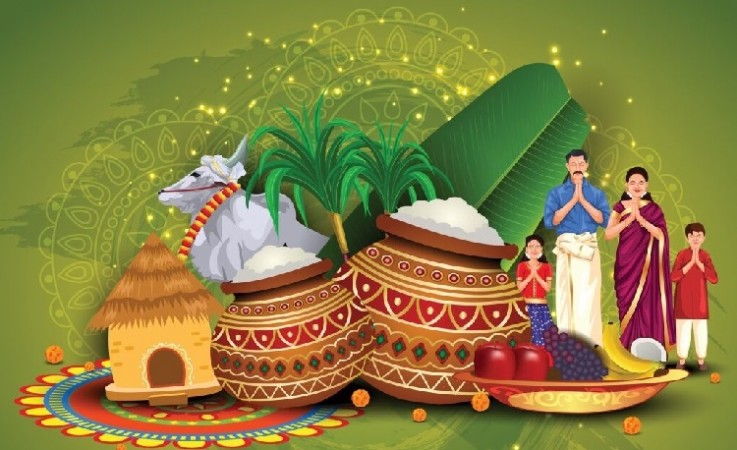
Makar Sankranti 2024: Makar Sankranti, a vibrant and joyous Hindu festival, is eagerly anticipated across India, typically occurring in January. This auspicious celebration holds deep cultural and agricultural significance, heralding the transition of the sun into the zodiac sign of Capricorn, or Makara. In 2024, Makar Sankranti falls on January 15th, a day following the observance of Lohri, as per the Hindu calendar.
The celestial timings for Makar Sankranti in 2024 hold specific significance. According to Drik Panchang, the Sankranti tithi will commence at 2:45 am on January 15th. The festival's Punya Kala, an auspicious time for rituals and observances, will span from 7:15 am to 8:07 pm, lasting 10 hours and 31 minutes. Additionally, the Maha Punya Kala will start at 7:15 am and conclude at 9:00 am, spanning 1 hour and 45 minutes.
Significance:
Makar Sankranti reveres the Sun God, Surya, commemorating the sun's movement into Makara Rashi, symbolizing a new phase and the end of the winter season. This festival, celebrated widely across the Indian subcontinent, holds immense cultural significance, signifying the onset of longer days and the auspicious period known as Uttarayan.
Unique Aspects and Celebrations:
The festivities surrounding Makar Sankranti are vibrant and diverse, reflecting the rich tapestry of Indian culture. One of the most distinctive aspects of this festival is the tradition of kite flying. People of all ages take to the rooftops, parks, and open spaces, filling the skies with colorful kites, adding an exquisite charm to the celebration. The sight of the sky adorned with myriad kites of different shapes and sizes is a spectacle to behold.
Another intriguing facet of Makar Sankranti is the array of traditional delicacies prepared and shared during this time. Sweets made from sesame seeds, jaggery, and various grains are savored, with dishes like tilgul, chikkis, puran poli, and pitha being popular choices. The exchange of these homemade sweets symbolizes goodwill, harmony, and the spirit of sharing among friends and family.
Moreover, in different regions of India, diverse customs and rituals are observed during Makar Sankranti. In states like Maharashtra, the festival is known as 'Sankrant' and is marked by the exchange of tilguls or sweets made from sesame seeds and jaggery, accompanied by the customary greeting, "Tilgul ghya, god god bola" (Accept these sweets and speak sweet words).
In the state of Punjab, Makar Sankranti is celebrated as 'Maghi.' People take cleansing dips in rivers, especially the holy river Ganges, followed by traditional feasts and folk music and dance performances.
Across India, bonfires are lit, symbolizing the triumph of good over evil and the welcoming of longer, warmer days. Additionally, various cultural events, fairs, and kite-flying competitions are organized, fostering a sense of community and joyous camaraderie among participants.
Makar Sankranti is not merely a festival; it's a time of unity, renewal, and gratitude, marking the beginning of a new phase in nature's cycle and fostering a spirit of togetherness among diverse communities.
In essence, Makar Sankranti encapsulates the essence of joy, traditions, and the celebration of nature's bounty, embodying the rich cultural heritage of India while fostering unity and harmony among its people.